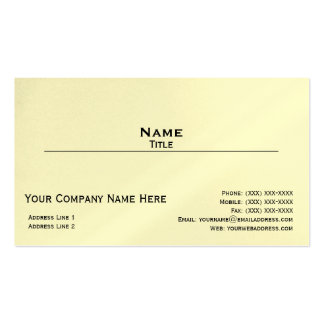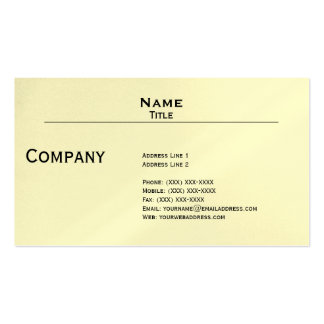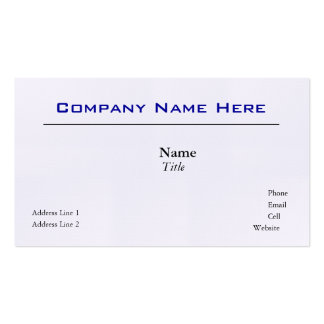SEO is a dynamic world, and trends dissipate on an almost daily basis. Keywords themselves are a perfect example; in many ways, they’ve been under attack recently, no longer as powerful as they once were. So does that mean domains that feature keywords are falling out of favor
as well?
An SEO software company called ‘CanIRank’ says absolutely not. While many mainstream SEO experts are touting that the power of these expensive commodities has dwindled, new research from CanIRank disputes these claims in a major way. In fact, they state that even if Google has been scaling back on giving a boost to keyword domains, their power hasn’t lessened.
Why? Because according to their research, the inherent power of a keyword-centric domain doesn’t even need Google for validation; these quite often hold their own no matter what Google’s algorithm prefers. According to the study, “people are more likely to use relevant keywords as anchor text when they link to a keyword domain, which holds a lot of weight.”
If you’re a startup pondering the conundrum of a domain purchase, the CanIRank study unequivocally says a keyword URL is integral. They state that the average keyword domain purchase is just $2,000, which “can be calculated against link building and traditional SEO efforts to determine which combination of tactics will provide the best ROI.”
What Makes the CanIRank Study Uniquely Powerful
So how does a new startup’s study stack up against the opinions of many other SEO experts? For one, they have math on their side.
CanIRank approached this research in a different manner than most other similar studies. As a rule, previous studies would only examine the impact of a single ranking factor, looking at the correlation between high and low rankings against this one consideration. And quite often, this involves the almighty backlink.
But as anyone who has attempted SEO knows, search engine algorithms are far more complex. But in CanIRank’s words, what’s most important is “a series of intertwining classifiers trying to determine e.g., what type of site we’re dealing with, how quality the page is, and how authoritative the site is in that topic area, and whether or not the page is spam. Each individual factor is simply another piece to the puzzle. An apt metaphor is a blind man trying to identify an elephant: How large is it? Does it have a tail? Does it have a trunk?” Instead of single correlations, CanIRank looked at the relative impact of multiple ranking factors, creating a more “nuanced” story, with results that feel a lot more compelling and trustworthy.
The Stats That Indicate Keyword Domains are Still Must-Haves
In CanIRank’s comprehensive study, the following key findings were crucial in their analysis of how important keyword domains still are. For starters, they found that keyword domains still rank, on average, 11% higher than brandable domains. In addition, these points were highlighted:
- Brandable domains needed an average of 40,000 more links to hit #1, and 35,000 more links to reach the Top 10
- Brandable domains needed 69% higher Domain Authority and 22% higher Page Authority to rank in the Top 10
- Keyword domains were able to hit #1 with half as much content, and only using the keyword half as frequently
- Looking at all Ranking Factors, it’s clear that keyword domains rank more easily due to higher Website Relevancy and Website Ext Relevancy scores
This study emphasizes that when you look at rankings based on a single correlation, keyword domains don’t necessarily hold much weight anymore. Yet this simplistic view is vastly misleading. CanIRank outlines the importance of keyword domains this way:
“Websites built on keyword domains naturally attract more keyword-relevant anchor text, one of the oldest but still most influential ranking factors, and something that happens only rarely for brand sites. In addition, websites built on keyword domains tend by their nature to be highly focused on the keyword topic, and at least some of this relevancy may be attributable to the domain name. In many ways, small, focused keyword websites are a crucial part of Google search result pages that seem to always feature the same half dozen big brands. They provide necessary domain diversity, and it’s hard to argue that an entire website focused on a topic doesn’t provide better information than a single page of content written by a non-specialist on say, CNN or the New York Times.”
Is a Keyword Domain Right for Your Business?
Even with this powerful data, keyword domains aren’t necessarily a must for every company. They are, after all, one tool in a marketing strategy’s toolkit, and balance is the secret to success. If you score high on the following attributes, a keyword domain may not move the needle much more:
- PR
- Affiliate programs
- Brand awareness and expansion
- Social media
In other words, how much heavy lifting do you expect your keyword domain to take on? If you’re already adept at various other means of marketing and SEO, you can afford to get a brandable or more esoteric URL. If you aren’t strong in the methods listed above, however, a keyword domain still has the power to boost your rankings. It all depends on the cost of the domain you have in mind, and how much power it will lend to your overall marketing strategy.








No comments:
Post a Comment